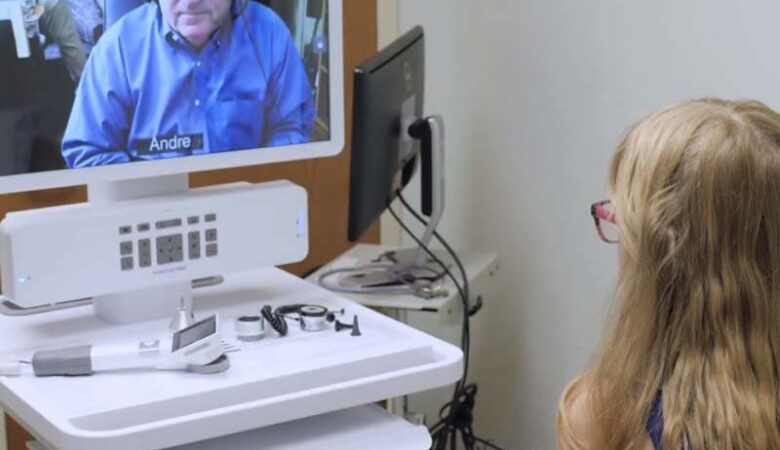Digital technologies are rapidly transforming all areas of our lives, and healthcare is one of the fields where this process is especially evident. The emergence of telemedicine has become one of the major achievements of recent years, and its development is closely tied to the broader trend of society’s digitalization. But who is currently leading the race for technological supremacy in medicine, and how is this influencing everyday life, including the online services market in the Czech Republic?
Telemedicine: A Revolution That Cannot Be Ignored
Just a few years ago, the idea of a remote consultation with a doctor seemed like something out of science fiction. Today, telemedicine has firmly entered everyday life in the Czech Republic: video consultations, electronic prescriptions, and remote health monitoring have become a familiar part of medical services. The format of “primary consultations” for urgent issues has become particularly popular, significantly easing the burden on clinics and speeding up the delivery of medical care.
Digital medicine helps not only patients in major cities but also residents of remote areas, for whom a trip to the doctor could previously take several hours. Now, many issues can be resolved in just half an hour using a mobile application.
Against this backdrop, interest in other online services is also growing. For instance, the development of telemedicine goes hand in hand with the rise of various digital leisure platforms — from video streaming services to online entertainment like new czech casinos, offering fast and convenient access to entertainment at any time. All of this is part of a broader trend: society is increasingly transferring everyday activities into the digital environment, focusing on convenience and speed.
Modern patients are becoming more demanding regarding the quality of digital services. They expect medical services to be as accessible and efficient as ordering a taxi or participating in a virtual game. Therefore, the constant improvement of technologies and user experience remains a top priority.
Who’s Setting the Pace: Global and Czech Realities
On a global level, the leaders in healthcare digitalization remain the USA, Israel, and several Northern European countries, such as Sweden and Denmark. Their success is attributed to active investments in the IT sector and clear legislative regulation of the telemedicine field.
The Czech Republic is also making active strides forward, though not without challenges. In recent years, projects have been launched to digitize medical records, expand electronic prescriptions, and integrate telemedicine systems into insurance medicine. The private sector — clinics, insurance companies, and startups offering innovative solutions for patients — plays a significant role in this process.
Successful integration of technologies into the healthcare system requires not only investment but also societal support. Increasing the level of trust in telemedicine is one of the key factors determining the pace of its development.
Main Directions of Telemedicine Development
Electronic Prescriptions and Digital Medical Records
One of the fundamental elements of successful healthcare digitalization is the implementation of electronic prescriptions and digital patient records. In the Czech Republic, this process is gaining momentum, especially after the COVID-19 pandemic, when the need for remote management of treatment became obvious. The convenience lies in the fact that prescriptions can now be sent directly to pharmacies without an in-person doctor visit.
Artificial Intelligence in Diagnostics
The use of artificial intelligence significantly accelerates diagnosis and improves the accuracy of examinations. Today, there are already pilot projects in the Czech Republic where AI analyzes X-rays or assists in interpreting test results, reducing the burden on doctors.
Platforms for Remote Consultations
The creation of convenient and secure platforms for video consultations has become a priority. Several Czech companies already offer solutions that comply with European data protection regulations (GDPR), allowing patients to feel confident and secure.
Healthcare Digitalization and Its Impact on Lifestyle
The fact that healthcare is becoming increasingly accessible online is changing the general perception of digital services. People are getting used to trusting the internet in areas that once required personal presence, whether it’s visiting a doctor, conducting banking operations, or participating in online entertainment.
It’s no surprise that interest in other digital services is growing in the Czech Republic: online courses, investment platforms, streaming services, and even virtual entertainment such as online casinos. All this reflects a broader trend — the desire for convenience and time optimization through modern technology.
Technologies are shaping a new lifestyle where speed, accessibility, and comfort are key. In this environment, those services that best understand user expectations and can quickly adapt to changes are the ones that succeed.
What Awaits Telemedicine in the Near Future?
Experts predict that in the coming years, telemedicine in the Czech Republic will develop even more actively. The main expectations include:
broader integration of telemedicine into the national healthcare system;
emergence of new startups focused on chronic disease monitoring;
proliferation of gadgets for personal health monitoring;
development of legislation concerning insurance coverage of telemedicine services.
The main driver behind all these changes remains the same — the desire to make medical care faster, more accessible, and of higher quality. This means that the Czech Republic faces an even closer intertwining of digital technologies and healthcare, which will finally establish telemedicine as an integral part of our lives.









